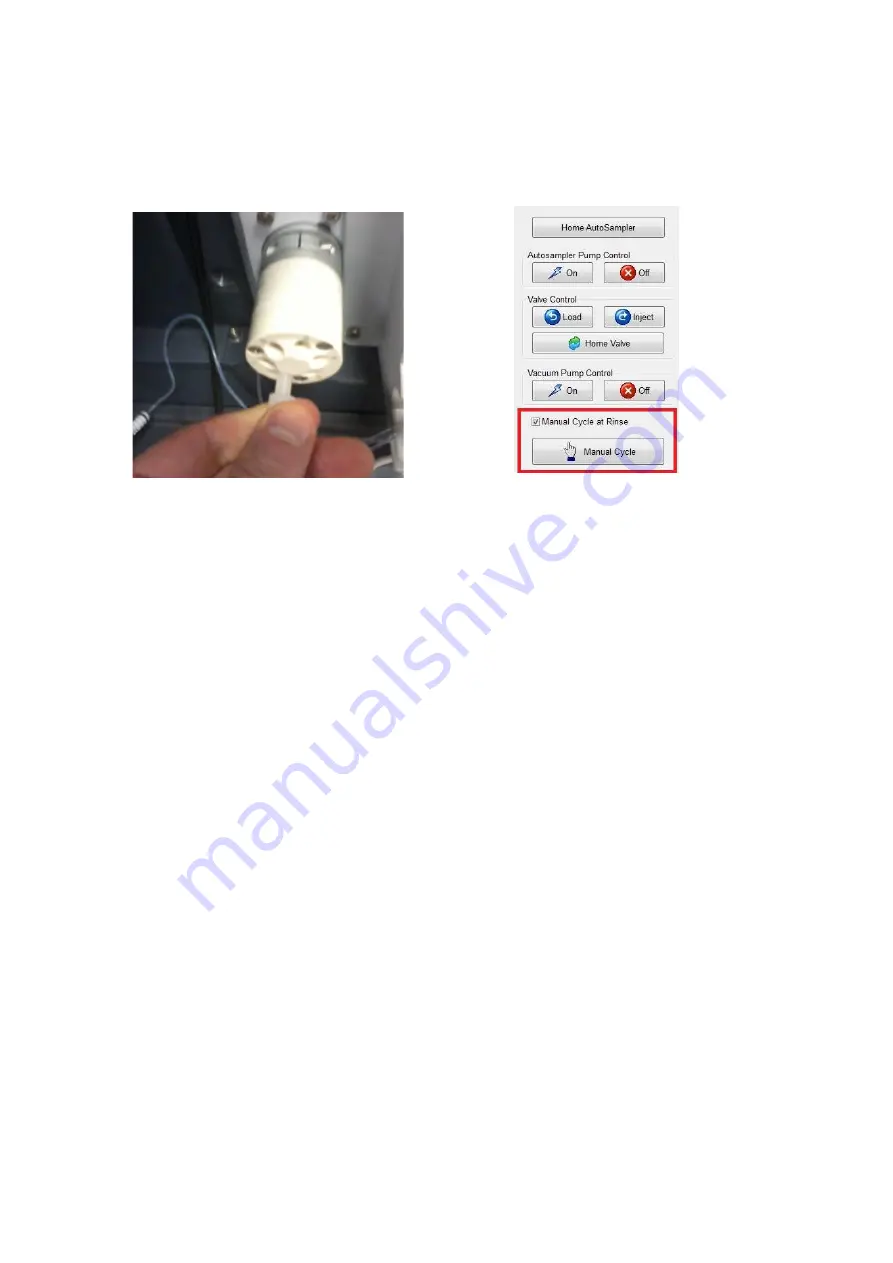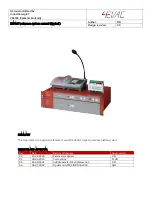
iCAP Customer Familiarisation Manual
Page 56 of 72
This document is part numbered 849940090071
Version 1.02
Reattach the tubing connectors and use the ‘manual cycle’ function in the sprint valve
Configurator software to check for leaks:
8.2.4.5
Checking for Leaks{ XE "inspection" }{ XE "leaks:finding" }
The tubing has a finite lifespan{ XE "tubing:lifespan" }, and will wear out under normal use.
Standard maintenance procedures require that you periodically check for leaks. To do so,
complete the following steps:
•
Visually inspect all tubing and valves for leaks or signs of deterioration.
•
Visually inspect the surfaces below all tubing for signs of liquid.
If you detect a leak or other damage to any component, you must replace it. For more
information, see the appropriate section in this chapter.
8.2.4.6
Replacing the Tubing{ XE "tubing:replacing" }
To replace the tubing, complete the following steps:
•
Remove and replace all tubing as necessary, using care to remove/replace tubing at barb
fittings and at compression type fittings without damaging those fittings to which they
connect.
For more information on how to install the rinse tubing refer to the installation section earlier.
8.2.4.7
Replacing or Reorienting the 6-Port Valve { XE "valve:replacement" }{ XE "6-port
valve" \t "See valve" }{ XE "valve:orientation" }
The 6-Port valve assembly has a finite lifespan that is dependent upon the conditions and sample
media to which it is exposed. Exposure to higher sample solids levels reduces the valve lifespan.
To determine whether the 6-port valve requires replacement, inspect the unit for these conditions:
•
Valve dripping or leaking from the overflow hole behind port #4 at bottom of the valve body.{
XE "leaks:from overflow hole" }
•
With no other apparent problems, air is present in the lines (indicating a leak or poor seal).{
XE "leaks:finding" }
The valve can also be reoriented so that the nebulizer port is as close as possible to the
nebulizer.
















































